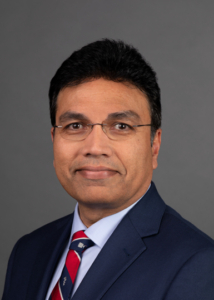Palliative Care: What You Need To Know

When it comes to palliative care and hospice, it’s common to confuse the two. Hospice is a specialized form of palliative care that concentrates on symptomatic care in the last six months of life. Palliative care can be offered at any time through serious illness, including soon after diagnosis and even if the illness is chronic but not terminal. In fact, palliative care specialists work alongside the primary care team and other specialists during active treatment. We asked our Palliative Care physicians, Dr. Amar Singh from Harbin Clinic Singh Internal Medicine and Dr. Roger Hiser from Harbin Clinic Primary Care Cartersville, to explain what exactly palliative care is, the benefits, and who it’s for.
What is Palliative Care?
Palliative care is a specialized and emerging form of care that provides symptom relief, comfort and support to those living with serious and chronic illnesses. It can be done alongside disease-directed care or independently. Palliative care strives to optimize a patient’s quality of life and has proven to have many benefits for those suffering with serious and complex illnesses.

What Does Palliative Care Provide?
A main focus of palliative care is pain and symptom control. Your care team will identify the sources of your pain and identify a treatment plan to reduce your discomfort. Some common symptoms that are treated with palliative care are pain, shortness of breath, fatigue, constipation, nausea, loss of appetite, difficulty sleeping, and depression. Another pillar of palliative care is emotional support for you, your family and caregivers. “Instead of focusing solely on the illness, we also address any social, psychological or emotional needs a patient may have,” explains Dr. Roger Hiser, a Harbin Clinic Primary Care Cartersville physician who specializes in palliative care. “Our goal is to achieve the highest possible quality of life for a patient by targeting their goals and curating a treatment plan to achieve them.”
Is Palliative Care Right for Me?
If you’re experiencing pain, stress or other symptoms resulting from a chronic illness, you could benefit from palliative care. Palliative care can start at any stage of an illness and can be administered alongside your curative treatment. It can also be started at any age. Some common illnesses that qualify for palliative care are cancer, cardiac disease (congestive heart failure), Chronic Obstructive Pulmonary Disease (COPD), kidney failure, Alzheimer’s disease, Parkinson’s disease, Amyotrophic Lateral Sclerosis (ALS), and more. No matter how serious your chronic illness is, palliative care is there to improve the quality of your life and reduce your suffering from symptoms.

The Care Team
Harbin Clinic palliative care is provided by a team of doctors, nurses and other specialists who work comprehensively to provide physical and emotional aid. Your care team may also include massage therapists, pharmacists, nutritionists and others depending on your treatment plan. Your plan of care is reviewed regularly by the palliative care team and discussed with you to ensure your needs and treatment goals are being met.
“When used alongside ongoing curative treatment, palliative care can help speed up the recovery process by alleviating symptoms like pain, fatigue, loss of appetite, nausea, and more,” explains Dr. Amar Singh, a Harbin Clinic Singh Internal Medicine physician who is board certified in Hospice and Palliative Care Medicine. “Palliative care is patient- and family-centered care that provides treatment and symptom relief with the goal of optimizing the patient’s quality of life. These measures of relief free a patient’s focus, so they can set and achieve goals, living as fully as possible within their condition.”
If you want to know if palliative care is right for you, talk to your primary care physician or learn more at Harbin Clinic Palliative Care.


